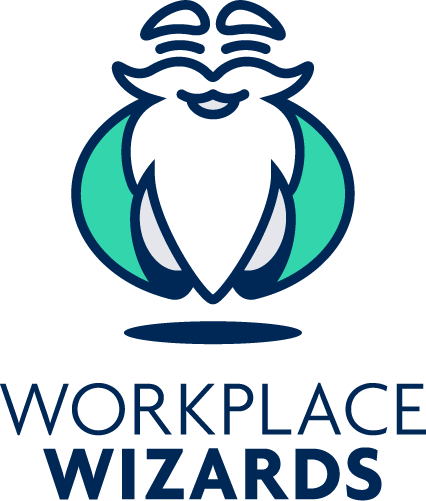If you work in a HR department you understand all too clearly the importance and sensitivity of your position. The HR team is the oil that keeps the engine of your organisation hurtling along at full capacity and optimum productivity.
The HR Department has to keep various ‘plates spinning’ all at once, shouldering the responsibility of maintaining cohesion, collaboration and (often) sanity in the workplace all the while ensuring the transactional and admin-related work of the department gets done, and on time. This focus helps to ensure that everyone gets along together and are focused on moving the company forward as a team. Put simply, we manage the human element of any business; we are the conscience of any company.
It is one thing to manage a business, it is quite another to manage people. This requires a unique set of skills all on its own. Below are six ‘non-negotiable’ skills every HR practitioner should possess, and continually strive to make as strong as possible:
1) Communication skills
Effective communication skills are absolutely vital for any HR professional. Communication is a key part of a HR professional’s daily activity as almost everything he/she does demands clear, concise and effective communication. Knowing how to convey a message – tailored to the recipient – is just as important as knowing what message to convey.
Without these requisite skills, you may pass an unintended message during interviews of prospective hires, confuse new hires when outlining position description, ‘lose’ line managers you are supposed to be supporting, the list goes on! Worse still, poor communication skills when applied to ‘thorny’ HR professional tasks – such as when trying to mediate between co-workers in damaging disagreement with each other.
Simply put, the effectiveness of your communication skills may be the only thing that stands between the company’s success and absolute chaos.
2) Multi-tasking Skills
Generally, multitasking skills are perceived as the determining factor between the leaders and the followers; this skill is required in managing HR. The HR professional deals with so many issues, with an employee issue this moment, then switch and deal with recruitment, then meetings (both planned and unplanned) etc. that multitasking, and being able to shift seamlessly from one task to another, becomes essential.
Many other management positions have a more linear focus, concentrating on delivering a project, set task or responsibility over a segment of the business, but HR professionals are involved (one way or the other) in every aspect of the business. That’s partly why we love it so much! Therefore, multitasking skills is necessary if a HR professional wants to thrive in a modern workplace
3) Planning and Organizing Skills
HR management requires the most organizational and planning capability of any other department. Also, monitoring progress and evaluating outcomes are part of the planning organising and reporting skills companies are increasingly demanding a HR professional brings to the table.
Strong planning and organising skills should be a mantra, a lifestyle for the savvy HR operator. It shines through whether or not they are in the office. It shows in the way their office is organised, how they arrange their files and documents, their dress, their time management and personal efficiency. Savvy HR managers have to always be at their sharpest and best. As HR professionals, we are dealing with people’s livelihoods so we want to always be available (and present) at the right time, prepared and ready to go ‘at the drop of a hat’, no matter the situation you are presented with. This takes a huge dose of organisation and planning to achieve. Do you have it in you?
4) Negotiation Skills
The modern HR professional may have a variety of complex negotiations occurring simultaneously in their organisation- from negotiation of wages and benefits for a new recruit, or ‘across the board’ for next financial year, to negotiations with trade unions regarding industrial agreements, negotiating an exit for an employee who is no longer ‘on the bus’, resolving conflicts among employee, making downsizing decisions, the list goes on.
The modern HR professional must be skilled enough in negotiation to be able to develop trust among various parties involved in a negotiation process and to find a mutually acceptable solution, no matter their corporate status
5) Building strong relationships (but ensure boundaries are maintained)
The modern HR professional is expected to show courtesy, diplomacy, understanding, friendliness, concern and civility towards others, as well as developing those key relationships which make them trusted, respected and admired. He/she should be able to develop and maintain effective relationship with every member of staff, being a confidant, sounding board, contact officer or ‘safe space’ to activate a grievance, dispute or ‘blow the whistle’.
On the flipside, the modern HR professional must then be careful not to develop relationships which make them ‘too close’ to staff, knowing they will be the person responsible for having to deal effectively with individuals who are problematic, not receptive to assistance or otherwise ‘troubled’ at work (be it stress, mental health issues, break down in key relationships etc.). They might have to be the person who announces the restructure (meaning their ‘work friends’ will lose their jobs), the sacking or handing out the disciplinary sanction. How does the gun HR professional ensure they have build trusting, lasting and effective relationships, but has not allowed appropriate work boundaries to get blurred?
On top of all of this, the modern HR professional has to demonstrate (and promote) a high tolerance level for people from different backgrounds, cultures and approaches as to how problems and conflicts should be solved. The HR professional should be sensitive to cultural diversity, race, gender, disabilities, and other individual differences within the organisation, knowing such diversity is ultimately what makes the organisation stronger overall. Have you got the mix right in your relationships at work?
6) Creative and strategic thinking
Lastly, HR professionals should be able to approach challenges in new and innovative ways by conceptualizing them in a different way. There are times when conventional approaches to solving an issue may not cut it; in such circumstances, the HR professional on top of their game should be able to draw from their imagination to develop new ways to approach and solve the problem.
Beyond the basics, principles and ethics of our profession, HR professionals are not – or should not – be the kind of people who think in a mould or default to “but we’ve always done it like this“. Thinking outside the box should be our comfort zone. This ensures that all hope is not lost whenever an established approach is deemed unsuitable, insufficient or is inaccessible.
Workplace Wizards regularly assists HR teams through specialist trouble-shooting support, strategic and planning functions to create lasting efficiency, or coaching/development programs for key HR managers/Directors. To find out how we can turbocharge your HR team, contact us at Workplace Wizards support@workplacewizards.com.au or 03 9087 6949
* With thanks to Hansica and the team at www.hrsoftware.in for assistance with this article. Go their website to find out more about the HR Management Software which can assist organise your HR function.



0 Comments Leave a comment
Comments are closed.